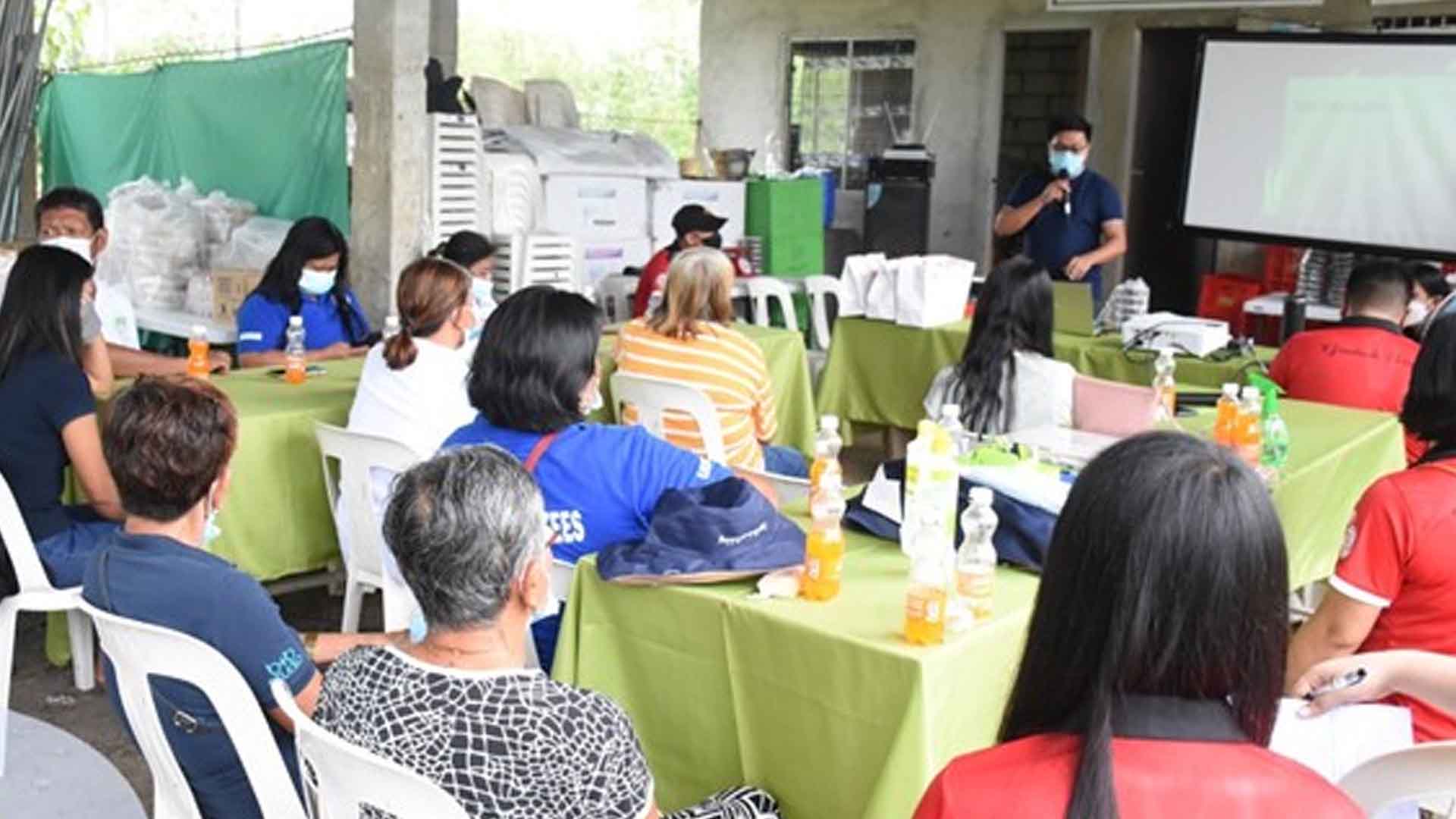Bagong Silang San Juan Batangas Farmers Association, Inc. (BSSJBFAI) received training on food safety and packaging technology as well as labeling requirements from the Department of Science and Technology (DOST)-Batangas in partnership with Batangas State University’s (BatStateU) Graduate School of College of Accountancy, Business, Economics and International Hospitality Management (CABEIHM). The training was conducted at Sitio Bagong Silang, Brgy. Escribano, San Juan, Batangas, last 28 May 2022.
BSSJBFAI is engaged in the production of chocolate-coated banana chips. They have adopted the technology on processing banana chips and integrated the chocolate coating process as product innovation they learned during the training provided by BatStateU-CABEIHM. To further improve their product, the Master in Business Administration students of BatStateU-CABEIHM initiated the capacity building activity for the farmer-workers on product packaging technology, labeling requirements and food safety.
Mhark Ellgine A. Libao and John Maico M. Hernandez, both Science Research Specialists of DOST-Batangas, facilitated the training. Libao served as the resource speaker for food safety and covered topics such as, Good Manufacturing Practices (GMP) requirements, importance and benefits of GMP implementation in the food business, and compliance to the stipulations of the Food Safety Act of 2013 or Republic Act 10611. All of the farmer-workers were asked about their individual functions and the manufacturing practices they observe during production. Common practices that challenge their compliance with food safety standards were also discussed as a means of tracing and addressing problems.
The discussion also touched on several topics on food manufacturing. These are the following: GMP organization, education and trainings, premises, plant construction and design, equipment, sanitation and hygiene, supervision, sanitary facilities, maintenance and sanitation, process control, chemical control, quality management, testing of reprocessed product, testing of returned goods, laboratory facilities and control, documentation, quality audits, warehouse and distribution, receiving and shipping, recall and traceability, retention of samples, and subcontracting of manufacture.
Hernandez, on the other hand, led the discussion on packaging technology and labeling requirements. The discussion on packaging technology covered the following topics: definition and functions of food packaging, factors in selecting product packaging, food packaging materials, packaging material tests, and food packaging techniques. Several innovations on product packaging were also discussed. Meanwhile, discussion on product label design focused on the following: definitions and objectives of label, mandatory label information common in all countries and according to Codex Alimentarius, parts of label, and the Food and Drug Administration’s Administrative Order (AO) No. 2014-0030 entitled “Rules and Regulations Governing the Labeling of Prepackaged Food Products Distributed in the Philippines”.
To educate the farmer-workers on the AO, Hernandez explained in detail the mandatory label information which consists of the following: 1) product name; 2) brand name/trade name (as per consumer act); 3) list of ingredients; 4) net content declaration; 5) name and address of manufacturer, repacker, importer, trader, and distributor and country of origin; 6) lot identification number; 7) storage condition; 8 ) expiration date; 9) food allergen information; 10) direction/instruction for use; and 11) nutrition facts/nutrition information/nutritive value. Other required information including alcoholic beverages, irradiated foods, additional information, and language were also explained during the discussion.







